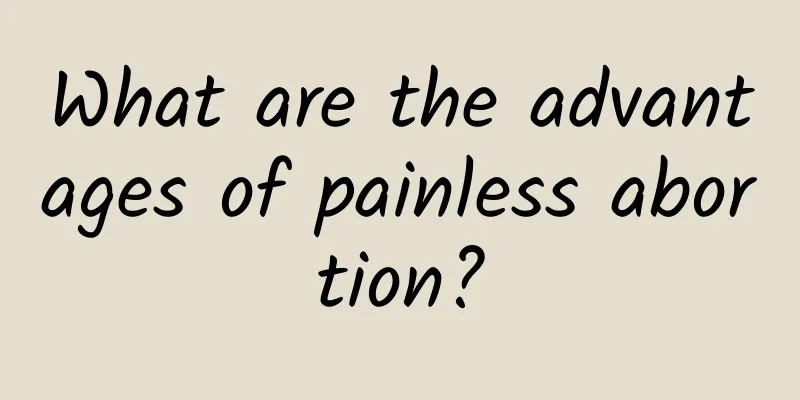Does the ketogenic diet lower blood sugar? Cure diabetes? Medical decoding: 4 ethnic groups to prevent ketoacidosis

|
The topic of ketogenic diet has been very hot for a while. With the emergence of various weight loss methods, some people still follow the ketogenic diet to lose weight. Many people want to ask: "Can the ketogenic diet lower blood sugar? Can the ketogenic diet cure diabetes?" In response to these two controversial questions, Zheng Shefang, attending physician of the Department of Endocrinology and Metabolism at Changhua Christian Hospital, specially filmed a video to answer everyone's doubts. In addition, he also reminded that it is not applicable to people in the high-risk group of "ketoacidosis". The first question is, "Can a ketogenic diet lower blood sugar?" Zheng Shefang, attending physician of the Department of Endocrinology and Metabolism at Changhua Christian Hospital, said that it is very simple to decipher this statement. We must first talk about why the blood sugar of diabetics is high. When the sugar in the diet is taken in from the intestines and absorbed into the blood vessels, the sugar in the blood vessels increases, but the function of insulin is not enough (insufficient secretion), and the blood sugar cannot be brought to the organs for use through insulin. The ketogenic diet reduces the proportion of sugar in the diet and increases the proportion of fat, so less sugar is consumed and absorbed, so naturally there is less sugar in the blood, so blood sugar will naturally drop. The second question is, "Can the ketogenic diet cure diabetes?" In fact, there are many mechanisms of diabetes, including that when the body's blood sugar is high, the pancreas continues to release glycogen into the blood, so there are drugs that specifically inhibit glycogen. Sugar is "nutrient" for the human kidneys, so when sugar runs into the urine, the kidneys will work hard to absorb it back. There are also drugs that can inhibit the reabsorption of sugar. In addition, some people's pancreatic function has deteriorated, so there are drugs to promote insulin secretion, and some diabetes drugs act on the brain to suppress appetite. Zheng Shefang, attending physician of the Department of Endocrinology and Metabolism at Changhua Christian Hospital, said that before using the ketogenic diet, you must consult a doctor to understand what type of diabetes mechanism you have. The doctor will then choose appropriate medications for treatment. Always consult your doctor before starting a ketogenic diet Therefore, it can be said that the reasons for high blood sugar in people with type 2 diabetes are very diverse. The ketogenic diet starts with the gastrointestinal tract, reducing sugar intake, which will improve blood sugar, but it cannot cure type 2 diabetes. Before using the ketogenic diet, you must consult a doctor to understand which of the above situations your diabetes mechanism belongs to. The doctor will then choose appropriate medication for treatment. It is particularly important to emphasize that the important reason why doctors do not recommend the ketogenic diet is that they do not want diabetics to only focus on lowering their blood sugar, but they do not want to see any pathological changes in the future, such as eye disease, kidney disease, neuropathy, etc. Ketogenic diet was first used to treat childhood epilepsy The ketogenic diet was first used to treat childhood epilepsy in the 1920s and was used for weight loss research in the 1950s. However, a review of 45 studies published on July 12, 2017 mentioned that it has many side effects, including gastrointestinal discomfort, high blood lipids, high uric acid, fatigue and infection. The proportion of children with epilepsy who have been using the ketogenic diet continuously for one year is 45.7%, and the proportion who have been using it continuously for two years is only 29.2%. Generally, large-scale studies require at least 3 to 5 years, or even 10 or 20 years of long-term follow-up. Therefore, it can be said that the ketogenic diet still needs more evidence. High-risk groups should not try the ketogenic diet to avoid ketoacidosis In summary, the ketogenic diet is not absolutely good or bad, and it depends on the individual case. Since patients with type 2 diabetes have multiple disease mechanisms, type 2 diabetes patients cannot be cured by a single mechanism. In particular, groups that strongly should not try the ketogenic diet include: patients with type 1 diabetes, pregnant women, patients hospitalized for serious illnesses such as pneumonia, kidney patients, etc. They are all high-risk groups for "ketoacidosis" and may make their condition worse. |
Recommend
Endometrial tuberculosis treatment price
In modern life, with busy work, irregular life an...
Can I do yoga with endometriosis?
We all know that the onset of endometriosis is no...
What are the contraindications for abortion surgery?
Artificial abortion refers to the use of surgical...
The longer the vacation, the more weight you gain! Calorie reduction and avoid eating fat
The longer the vacation, the heavier the weight! ...
Detailed explanation of the treatment of chronic pelvic inflammatory disease
Patients with chronic pelvic inflammatory disease...
Nitric Oxide Can Help You Lose Weight, Too! Onions and garlic can supplement nitric oxide and reduce the risk of obesity
Most people know that breathing more oxygen can i...
The most effective treatment for uterine fibroids. Are the drugs for uterine fibroids slow to take effect?
What is the most effective way to treat uterine f...
What is the cause of cervical erosion bleeding?
What is the cause of cervical erosion bleeding? O...
Chest expansion water bottle exercise! The golden career line follows
The sun is shining brightly. Whether on the beach...
Healthy life should be good at preventing cervical hypertrophy
In order to avoid the harm of cervical hypertroph...
How long does it take to recover from a miscarriage?
Abortion before 28 weeks of pregnancy due to abno...
What causes pelvic inflammatory disease?
Pelvic inflammatory disease is a common gynecolog...
What is the cause of cervicitis?
In recent years, cervicitis has been on the rise,...
Sugary soy milk, black soy milk, and salty soy milk, which one has the highest calories? Nutritionist: Drinking the wrong soy milk will increase your weight instead of reducing it
Breakfast is the most important meal to start the...
Will green dregs of vaginal discharge heal itself? Is it vaginal candidal infection?
Green dregs of vaginal discharge will not heal on...









